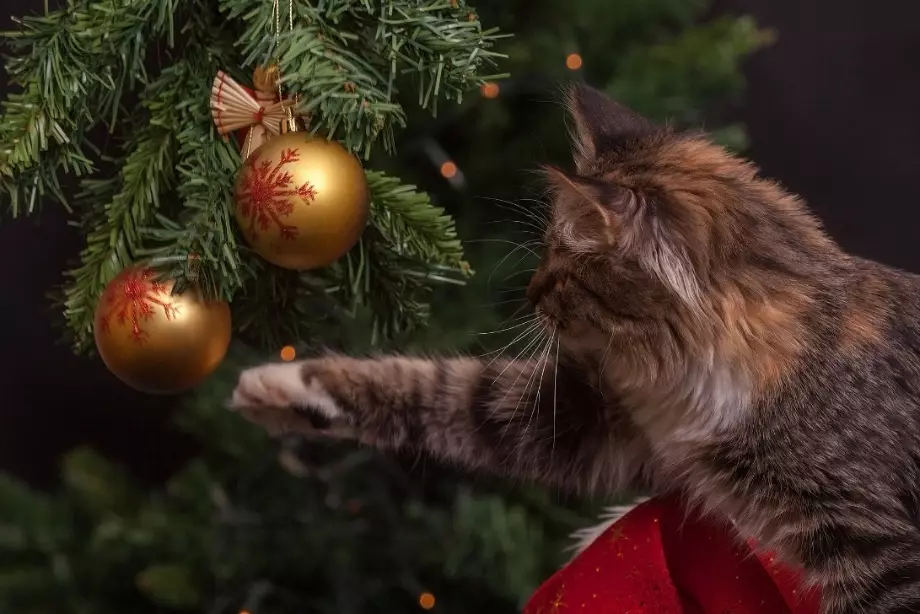As the enchanting Christmas season approaches, most households revel in the splendid tradition of indulgent feasts and delectable snacks. It’s a time for sharing, not just with family and friends, but often with our beloved pets as well. However, amidst the merriment, it is crucial to remember that certain festive foods pose dangerous health threats to our feline companions. As caretakers of our pets, it is our responsibility to ensure their well-being and prevent potential health hazards during the celebrations.
Festive Foods to Avoid for Feline Health
While many human favorites often appear on the Christmas table, several of these can be toxic to cats. Items like Christmas pudding, mince pies, or any food containing dried fruits like raisins and sultanas are particularly hazardous. These fruits are highly toxic to felines and can lead to severe kidney failure if ingested. Symptoms of poisoning include vomiting, increased thirst, and changes in urination patterns, which can be alarming for pet owners.
Another group of foods to be wary of includes any dishes seasoned with allium vegetables such as onions and garlic. These ingredients are frequent staples in recipes for stuffing and gravies, but they can wreak havoc on a cat’s red blood cells, causing potential anemia. If your cat ingests these foods, signs may manifest as diarrhea, lethargy, or an uncharacteristic disinterest in food. These symptoms highlight the necessity of vigilance in the kitchen during the festive season.
Hazardous Treats: What to Keep Off the Plate
Chocolate is a well-known no-no for pets, and cats are no exception. The compound theobromine found in chocolate is especially toxic, leading to symptoms such as muscle twitching, elevated heart rate, and even seizures in severe cases. Although the risk is less with white chocolate due to lower theobromine content, it is still laden with sugars and fats that can upset a cat’s stomach. Therefore, all chocolate should be treated as off-limits, and house rules should be established to keep it safely tucked away.
Similarly, macadamia nuts, while often enjoyed by humans, can lead to symptoms such as weakness, vomiting, and joint stiffness in our pets. The exact reason for this toxicity remains unclear, making it even more difficult for caring cat owners to gauge the risks. Add to the list blue cheese and any moldy foods, which can lead to severe reactions. The compound roquefortine C found in certain cheeses can induce muscle tremors and seizures, which, as any pet owner can attest, are distressing outcomes to witness in our furry friends.
Safety Tips for a Joyful Christmas
Preventing accidental consumption of hazardous foods should be a top priority for pet owners during the festive period. One simple yet effective strategy is to keep any chocolate and sweet treats firmly out of reach. While this sounds like a no-brainer, cats are notoriously curious creatures. Advent calendars and festive chocolates can easily tempt them from their high sanctuaries, leading to unfortunate incidents.
Also, consider using alternative, cat-friendly treats that can bring joy to your pet during the holiday season. There are numerous options available that don’t compromise their health and will still make them feel included in the festive fun. For instance, offering small portions of cooked turkey meat (without bones, fat, or seasoning) can be a safe way to share the holiday spirit with your feline while keeping their safety intact.
Even though this time of year is filled with temptation for both humans and their pets, a little forethought can go a long way in preventing unfortunate health scares during the holiday festivities. Remember, our furry friends rely on us to protect them from the potentially harmful aspects of our own celebrations. By staying informed and proactive, we can ensure that the only thing our cats experience this Christmas is joy, safety, and cuddly moments together.


Leave a Reply